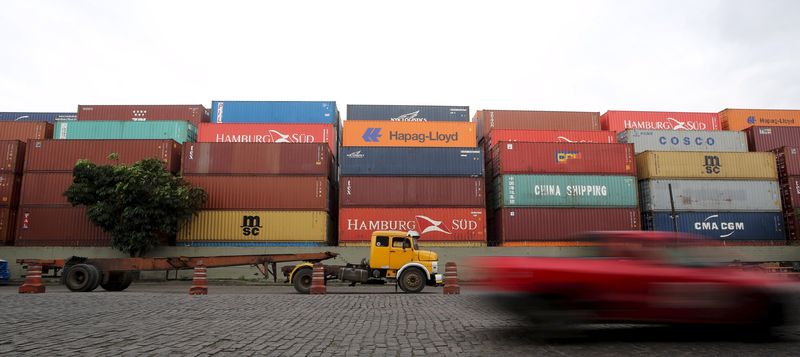By David Ljunggren
OTTAWA, March 24 (Reuters) - The Canadian government wants to boost exports by 30 percent over the next eight years, but experts and analysts say the goal is highly ambitious given a series of major challenges facing exporters.rast
These include low levels of capital investment by Canadian firms, a sluggish export sector and uncertainty over what economic policies U.S. President Donald Trump will introduce.
In a budget unveiled on Wednesday, Liberal Finance Minister Bill Morneau promised investments in targeted areas such as advanced manufacturing, clean technology, agri-food and digital industries.
This should help grow the value of goods and services exports by a total of 30 per cent by 2025, he said. Such a return would require a compound annual growth of 3.0 percent, higher than seen in recent years.
"I think it is a stretch ... it is a pretty ambitious goal," said Dennis Darby, president of the Canadian Manufacturers and Exporters group, who nonetheless welcomed Morneau's promise of targeted investments.
Canada already sends around 75 percent of all its goods exports to the United States and manufacturers are watching closely to see whether Trump cuts taxes and imposes a border tariff, both of which would hit Canadian firms.
"Companies are cautious in making additional investments, they're cautious in expanding, and that will certainly slow things down," Darby said. Firms are also hampered by a lack of people to fill skilled trades jobs.
Canada's exports of goods and services grew by a total of 11 percent from 2008 to 2016, a period that includes the global recession.
Robert Wolfe, a professor and trade policy expert at Queen's University in Kingston, said the government had little control over factors such as customer demand and the price of commodities, a key Canadian export.
"It's always hard to set numerical targets on something like export growth that depends on other people buying your products," he said.
The Bank of Canada, which has long complained about the weak performance of non-energy exports, said on Tuesday that "exports continue to face ongoing competitiveness challenges". Alexander, chief economist at the Conference Board of Canada, said the 30 percent target might be hard to reach given the export sector's woes and the cautious approach taken by some companies.
"Business investment in machinery and equipment is actually running at below the rate of depreciation so the capital stock in Canada is getting smaller," he said.
